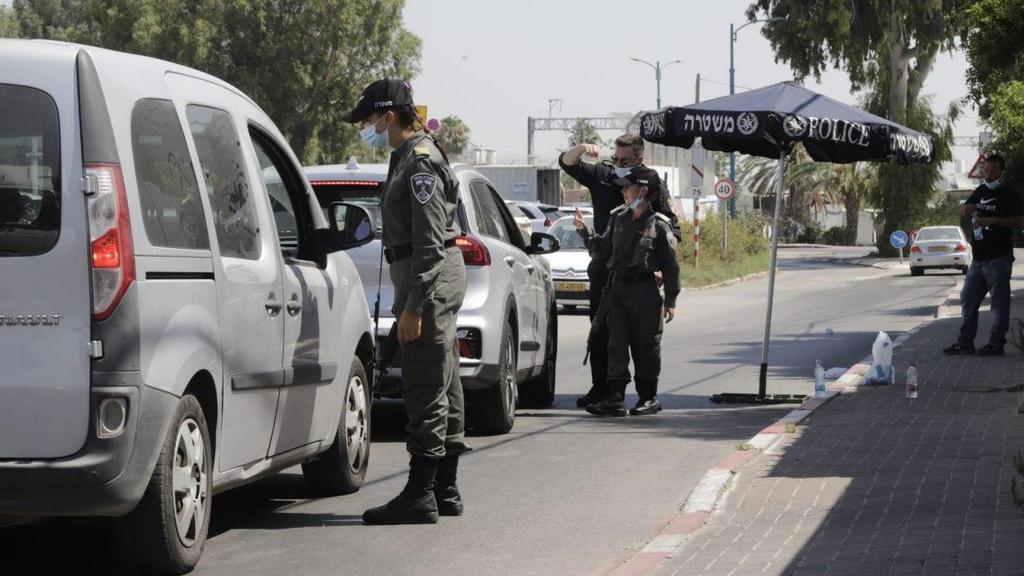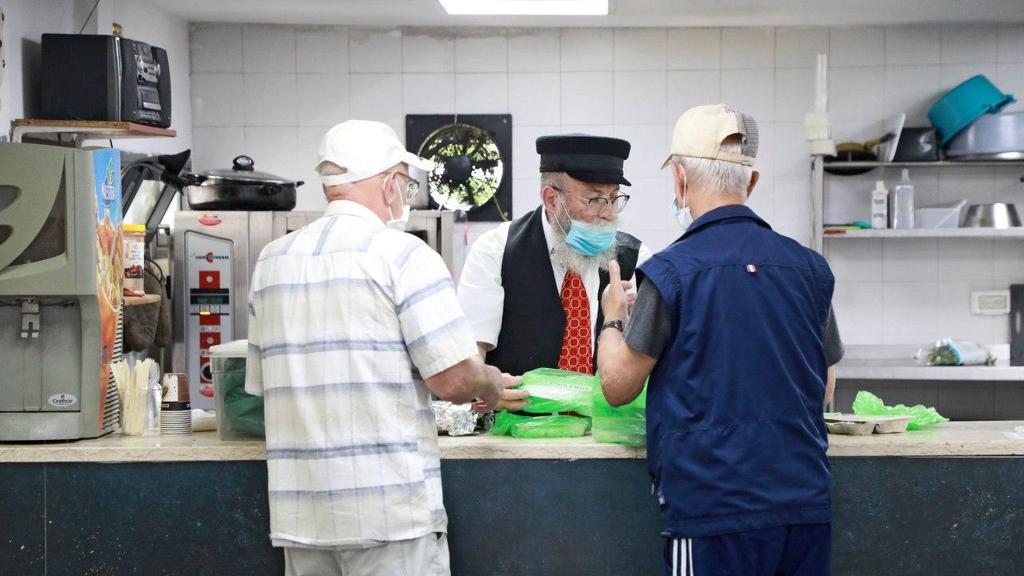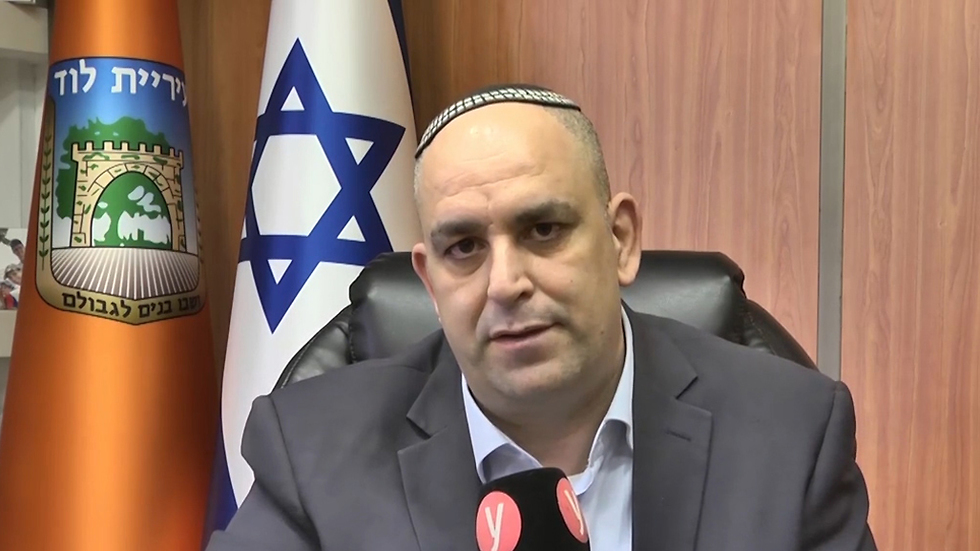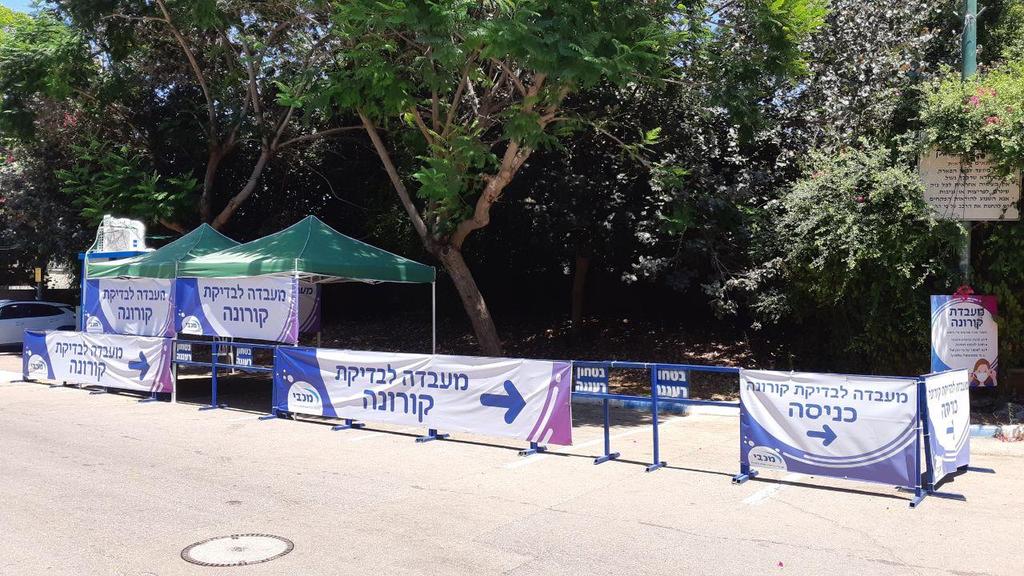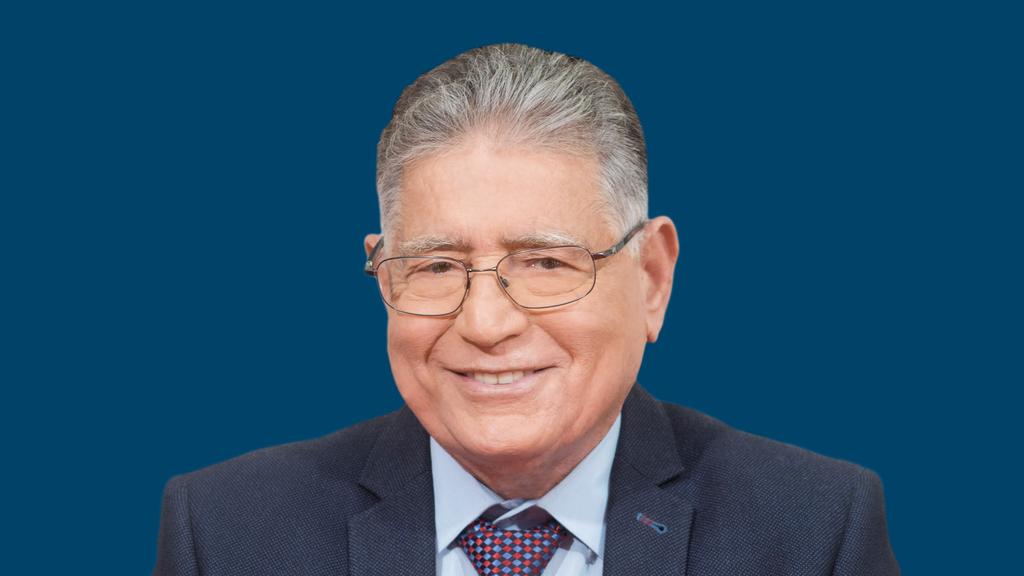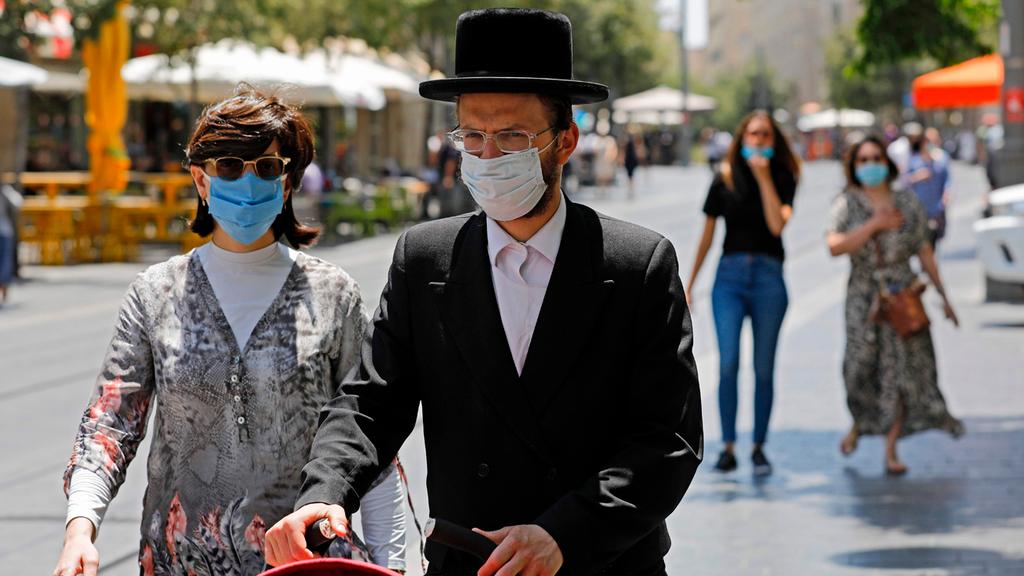Getting your Trinity Audio player ready...
With the so-called coronavirus cabinet yet to announce more areas to be put under closure due to soaring coronavirus infection rates, some local leaders have expressed opposition to the move.
But mayors in the neighboring cities of Ramle and Lod in central Israel have already begun preparing for some of their districts to be closed.
According to Health Ministry guidelines, locations are put under closure when there are 50 or more confirmed cases, more than 151.8 people out of every 100,000 residents infected and there has been a 98.9% increase in cases over a seven-day period.
In Lod, where there were 225 active COVID-19 cases on Thursday, Mayor Yair Revivo days ago declared certain parts of the city as restricted areas, and more will see the same restrictions later in the day. The level of contagion in those areas will determine when these self-imposed closures are lifted.
Announcing the move, Lod municipality said only neighborhoods with especially high rates of the virus would be closed.
"In order for us to be able to lift all restrictions quickly and avoid more closures, I call on residents to observe Health Ministry directives, maintain social distancing, wear masks, and ensure personal hygiene. Let's make the effort, protect the health of our loved ones and emerge triumphant," Revivo said.
The mayor said that although residents of the affected areas are allowed to travel in and out of their neighborhoods for certain vital jobs and for medical and other supplies, his recommended that everyone stay home. He said religious establishments and child-care facilities would remain closed for the duration.
Revivo criticized the government handling of the crisis, saying he hoped wealthier cities would also be subject to closures in accordance with regulations. He cited Ra'anana, a prosperous city north of Israel with a high infection rate.
"If I see that Ra'anana is not [also] placed under closure, I will cease to cooperate with the government," he said.
In neighboring Ramle, the Health Ministry was seeking government approval for a city-wide lockdown due to 221 confirmed cases, but by Thursday afternoon only one neighborhood had seen restrictions on movement.
"The uptick in virus cases in Ramle is of great concern and I have been in consultations with senior health officials overnight," Mayor Michael Vidal told residents.
"After meeting with police, IDF Home Front Command and health officials, we have decided to review the latest information and will announce measures by the evening," he said.
8 View gallery
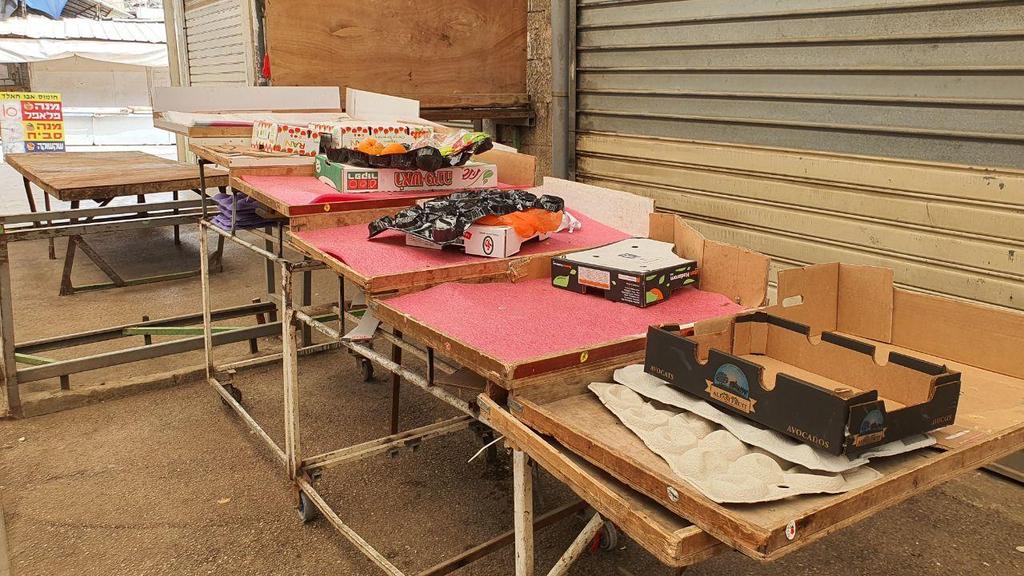

Stalls close early at Ramle market due to the city's rise in infections
(Photo: Shmulik Davidpur )
Yaakov Mazlawi, a resident who owns a market stall near one of the affected areas, expressed his anger at the authorities.
"There is talk of closure, but thus far I have not even seen any mitigating efforts such as taking people's temperature. The closure is sure to deal a fatal blow to business because no one will want to come here," he said.
Mazlawi, a familiar face at the market, has no qualms about assigning blame to the mayor and to Prime Minister Benjamin Netanyahu.
"There is no program to deal with the crisis," he said. "We thought by the time the second wave came around we would be better organized and that there would be someone who could give us information.
"Now we are reliant on rumors. All of us business owners have to know if our staff should come to work or not. Someone must take charge and deal with things," Mazlawi said.
In Ra'anana, which by Thursday had 164 cases, including at least 60 high school graduates who celebrated the end of the year together, Mayor Chaim Broyde called for more testing to be carried out.
Broyde told Ynet on Thursday that he had also taken the initiative to mitigate the spread of the virus in his city and had not waited for the government to decide on appropriate action.
"We took action as soon as we saw the number of kids infected at graduation parties," the mayor said. He canceled all activities for young people and all sporting events, as well as other precautions "so that we can reduce the number of cases within weeks."
The graduation celebrations that led triggered to many of the infections were held a venue that was allowed to hold up to 250 people. The students, many of whom are headed for illustrious positions during their mandatory IDF service, decided alone to hold the party despite an Education Ministry ban on such events.
The mayor said that the students have expressed sorrow for attending the party.
8 View gallery
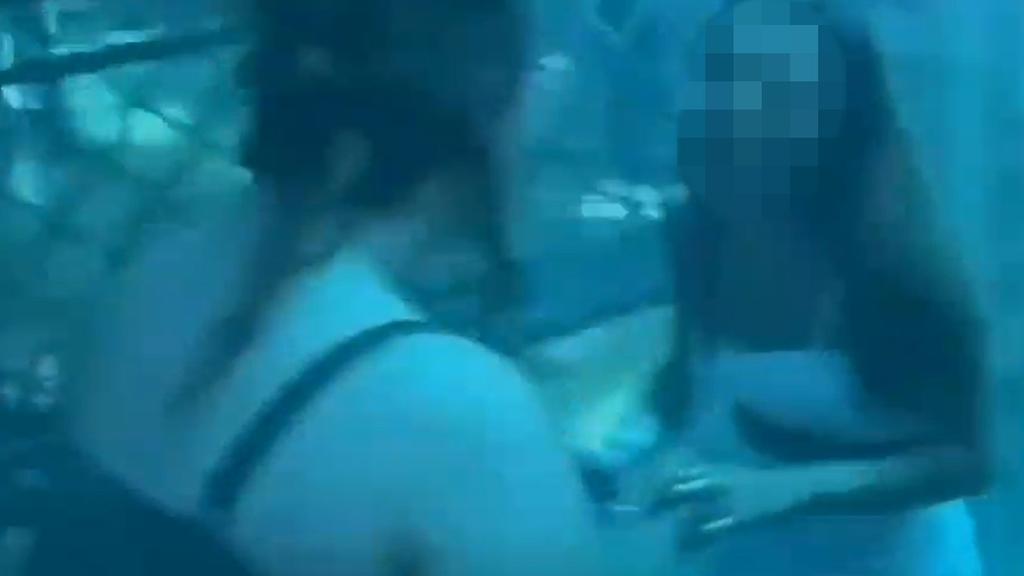

High school students attend an illicit underground graduation party held in breach of Education Ministry directives
"We heard their apologies and can see how much they regret their actions, unlike many of our national leaders who have also acted contrary to Health Ministry directives," he said.
"We have all learned our lessons from this event. There is no sense in saying this could not happen here," the mayor added. "These same kids that are now infected by the virus were out providing food and assistance to others during the first wave."
Further south, the city of Yavne was also still waiting to hear if and when a closure would be imposed on them. The city had 76 cases of COVID-19 as of Thursday morning.
Yavne Mayor Zvi Gov-Ari warned residents that if the rise in cases was not stopped, three neighborhoods would be placed on lockdown.
"I've spoken to the supervising doctor for the region and others at the Health Ministry about the rise of cases and understand that mitigation efforts may have to be put in place," he said.
Additional locations under consideration for closure include the ultra-Orthodox settlement of Modi'in Ilit, parts of the city of Beit Shemesh, the southern city of Kiryat Malakhi, five neighborhoods in Jerusalem and areas within the southern city of Ashdod. In Bnei Brak, religious seminaries and institutions may also be ordered to close.
Jerusalem Mayor Moshe Lion objected to the plan for parts of the capital to once again be placed under closure. In a letter to the Health Ministry, Lion wrote that closing off certain neighborhoods would only exacerbate contagion within.
Defense Minister Benny Gantz, himself in quarantine, and senior Defense Ministry and IDF officials agreed to assign 2,000 IDF reserve soldiers to help in the fight against coronavirus.
Gantz was also briefed on the preparations to open additional hotels to house coronavirus patients.


